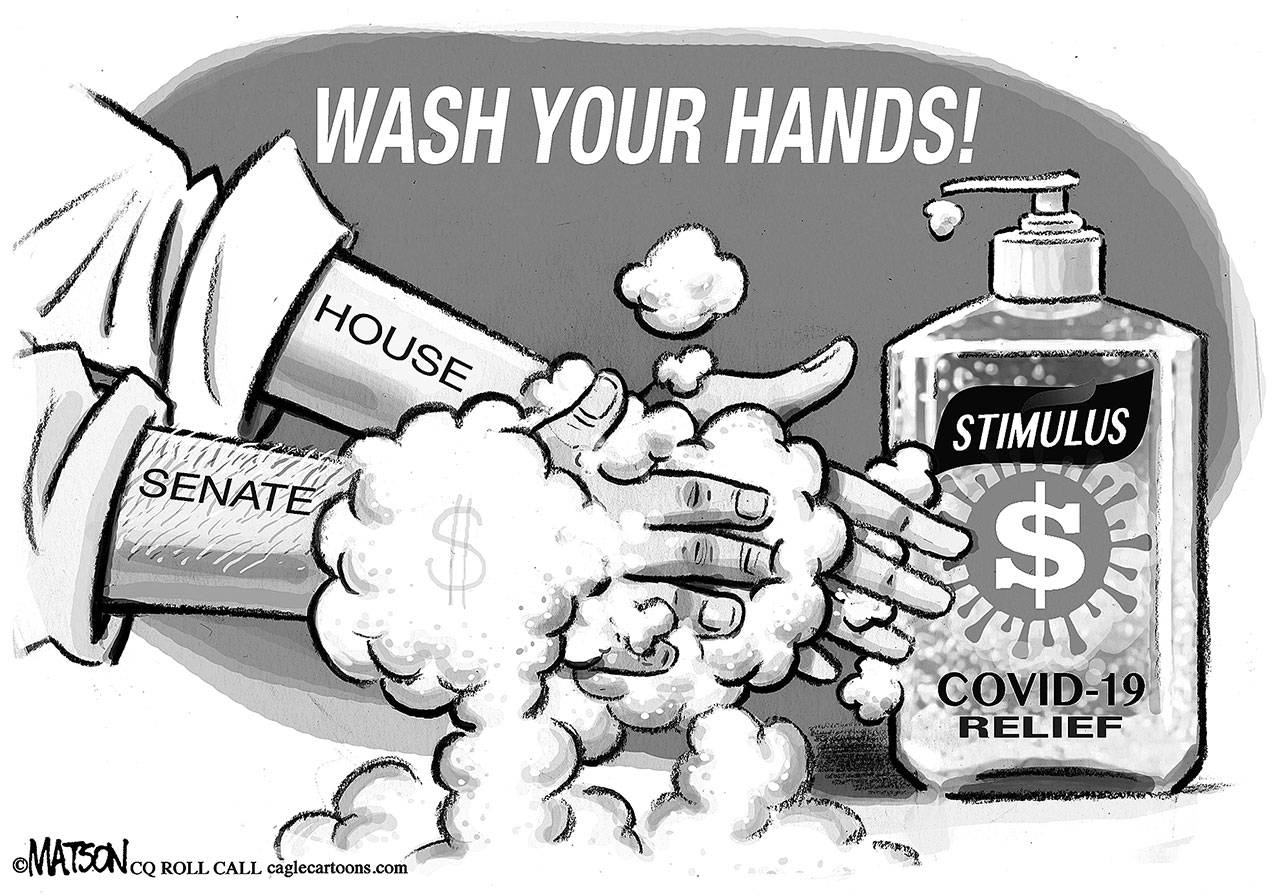By James K. Galbraith
Los Angeles Times
As the COVID-19 crisis deepens, my fellow economists have reached deep into their bare cupboards of old ideas, and what have they found?
Models that do not work: bailouts for big companies. Tax cuts for people well-off enough to owe taxes. Cash-grant schemes, a favorite of the universal income crowd.
These tactics won’t be effective. We cannot predict how bad the economic situation will get. And however bad it is, you cannot fill the hole with money alone.
In 1929, Irving Fisher, the greatest economist in America, said that stocks had reached “a permanently high plateau.” In December 2008, the incoming Obama team locked onto a forecast that was out of date by Inauguration Day. The models now are useless. Is the $1-trillion-plus package proposed by the Treasury Department “enough”? No economist knows. In this situation, we must act without knowing, and do whatever it takes.
But we must act wisely. Bailouts of airlines will benefit those who own stock. Tax cuts, no matter how designed, are geared toward people who have money to tax. These are not priorities.
Cash grants are another issue. Cash is simple, appealing and welcome —although getting it quickly to those most in need is not so easy. But the main problem right now is not a shortage of cash.
The critical looming problem is the security and stability of basic supplies. We can beat the virus if people are separated and sheltered in safe and secure homes and apartments. For that, they must remain housed and fed.
We need medical supplies, as everyone knows: masks, oxygen, respirators, ventilators. We need field hospitals, converting hotels and dormitories and even stadiums. We need people trained quickly to work these facilities and to be paid well for work that requires them to be on the front lines. We need to gear up factories all over the country to make the necessary goods, on the assumption that global supply chains will not be revived before inventories run out. For these tasks, we need workers.
We also need more basic, everyday items that flow across the country in vast domestic networks: food, cleaners, disinfectants, paper goods, motor fuel. They need to get into grocery stores, pharmacies and gas stations. For all that, we need truckers, stockers, checkout clerks, managers. Even the restaurants that now only offer takeout will need drivers. We need security guards in the stores. In short, our critical service and distribution workers need to stay on the job.
These needs aren’t going to be addressed by bailouts. And cash grants come with two big hazards. First, they may fuel panic buying and hoarding, accelerating the rush to shortages, deepening hardship and even hunger for those who do the right thing and refuse to panic. Second, cash grants may encourage essential low-wage workers to stay home, making it difficult to keep the distribution chains working as they must.
We need instead to guarantee that our critical sectors —food, fuel, medicines, household basics —all stay open, while everything inessential is closed. For this, workers in those sectors need higher wages, health protections, a guarantee that medical costs will be covered if incurred. Amazon has raised wages, and that is a start. All big distributors, grocery and drug chains and fast-food franchises should follow.
We’ll also need many more workers in health care —a sector where armies of domestic workers could quickly deploy their cleaning and housekeeping skills. People with some training in health care proper can get more. People who have quit the sector can come back. Better pay will help here as well.
The millions now being laid off do need expanded unemployment insurance —a shelter-in-place supplement would replace some lost income. The fast way to do this is through employers; just have the government reimburse them.
But more important for those at home is to cut their costs. Los Angeles has enacted a moratorium on evictions and late fees for renters. The federal administration has announced a moratorium on foreclosures for some mortgages. These are proper steps. Internet and other basic telecommunications services should be made free for the duration. The government can support closed businesses with loans and grants to keep them in hibernation until this abates.
Can all this be paid for? Of course it can be. Whatever we can do, we can afford. Getting caught up in budget guesswork, business as usual for Congress and economists, is a time-consuming mistake. In the end, the problem is not money. It is speed, logistics, targeting.
For that, a Health Finance Corporation, modeled after the Reconstruction Finance Corporation of Depression and World War II fame, with unlimited borrowing power, can put the money where it is needed. States and cities, the National Guard and the Army, business and labor can all do their part. If we act, at once and wisely, a better America will rise to the call.
James K. Galbratih teaches at the University of Texas at Austin.



